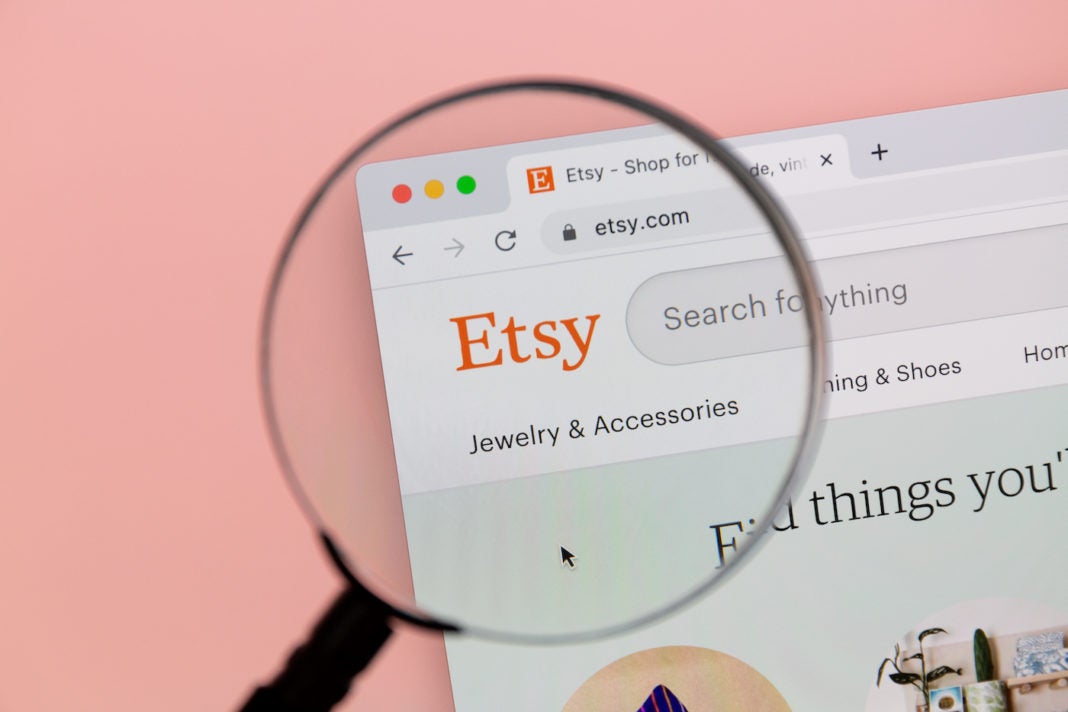Etsy—a leading online marketplace for artists, makers, and other creative retailers—has recently come under fire for its decision to increase its transaction fee from 5 percent to 6.5 percent. The company announced the increase in its Q4 2021 earnings report and said that it expects to “invest most of the incremental revenue from this fee increase in marketing, seller tools, and creating world-class customer experiences.”
This increase has prompted many members of the Etsy seller community to launch a petition that demands accountability from the company in light of its record-breaking profits over the last two years.
“We’re going on strike on April 11 to call on Etsy to hold itself accountable to sellers and buyers,” the petition states. “Sellers will put their shops on vacation mode in protest. Buyers can show support by agreeing to boycott Etsy from April 11-18.”
Sellers participating in the boycott have five specific demands:
- Cancel the fee increase
- Crack down on resellers who sell mass-produced goods
- Fix the slow support ticketing system
- End the Star Seller program
- Allow all sellers to opt out of the Offsite Ads program
The protest has even gotten support from the company’s founder, Rob Kalin, who was removed as CEO in 2011:
In solidarity with the boycott, some sellers have decided to leave the Etsy marketplace altogether. Many are launching their own independent online stores instead of waiting for the company to address the petition’s demands.
Top alternatives to Etsy
If you’re looking to follow suit, you may be wondering what tools you can use to create a new e-commerce site. The top Etsy alternatives to consider include Shopify, Big Cartel, and WooCommerce.
Shopify: Best for innovative features
Shopify is one of the most innovative vendors in the e-commerce space. Recent launches like Shop Pay Installments, Shopify Markets, and a new 3D visualization feature are great ways to expand your audience and create innovative customer experiences—two areas that draw sellers to Etsy.
If you’re not ready to cut ties with Etsy completely, Shopify offers integrations with Etsy and other marketplaces like Amazon, eBay, and Handshake. This allows you to manage all of your product listings from one central platform.
Read more: How Shopify Became an E-Commerce Powerhouse
Big Cartel: Best for small-scale artists and creators
Big Cartel caters to the same audience as Etsy: artists, makers, and others who run creative businesses. It’s free to use for up to five products and doesn’t charge a listing fee, making it ideal for those who are just starting out.
Big Cartel’s step-by-step guide for creating a custom shop is very intuitive, too, so it may be a strong contender for sellers who don’t have much web design experience or want a no-fuss setup process. Plus, Big Cartel offers features like shipment tracking, inventory tracking, and sales tax autopilot that help with running a business behind the scenes.
WooCommerce: Best for social commerce and advanced needs
Because WooCommerce is an open-source plugin for WordPress, it requires a bit more technical knowledge and setup time than Big Cartel or Shopify. However, WooCommerce is one of the most advanced and customizable e-commerce tools on the market, so it should be at the top of your list if you need an alternative for a large Etsy shop.
WooCommerce regularly rolls out new features and extensions that help sellers stay competitive. Most recently, WooCommerce announced a new partnership with Pinterest that allows retailers to sync their product catalog with their Pinterest for Business account in just a few clicks. This capability is invaluable with the rise of social commerce and similar trends.
Related: 5 Small Business E-Commerce Trends for 2022
Looking beyond third-party marketplaces
Though the goal of this boycott is to make Etsy a more equitable marketplace for individual makers and creative small businesses, it has also illuminated many of the problems with relying on a third-party platform as a sole source of revenue. Etsy sellers are subject to high transaction and listing fees, which eats into profit margins that are often already very small.
By creating an independent online store, you not only have more control over your revenue, but you’ll also get access to first-party customer data. This means you won’t have to worry about reaching your customers if a third-party platform like Etsy or Facebook goes down. Plus, you’ll get data-backed insights that will help you make smarter decisions and grow your business strategically.
If you aren’t sure that the Etsy alternatives on this list are right for you, explore other solutions on our list of the Best E-Commerce Platforms For Small Business.


